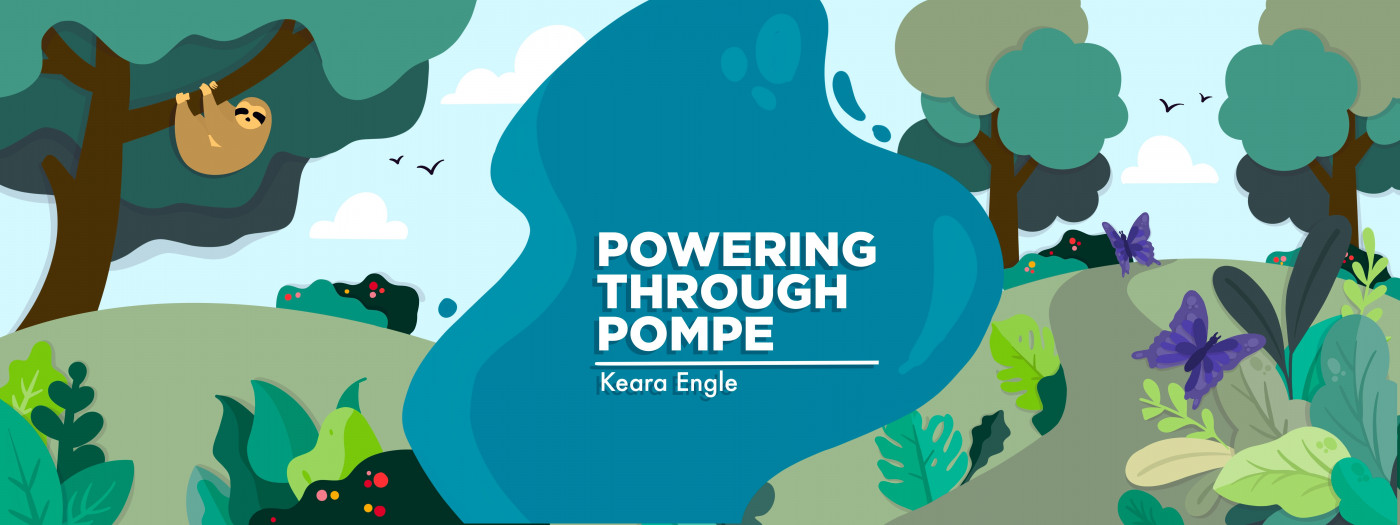Anticipating the Switch to Nexviazyme Infusions for My Son With Pompe Disease

Last week, we had our last home infusion for the summer. It was a bittersweet moment for sure.
My 4-year-old son, Cayden, has been getting weekly Lumizyme (alglucosidase alfa) infusions from the same nurse at our home since he was about 18 months old. The infusions are necessary because Cayden has infantile-onset Pompe disease.
Until recently, Lumizyme was the only treatment option for Pompe disease. A new FDA-approved medication is now available for the rare disease called Nexviazyme (avalglucosidase alfa), which Cayden will be receiving for the first time later this week! Making the switch to Nexviazyme certainly wasn’t a fast or easy process, but I’m glad that Cayden’s specialists could make it happen.
He will receive biweekly Nexviazyme infusions at the children’s hospital infusion clinic about 2.5 hours from our home until the middle or end of August. They need Cayden to complete four or five infusions without having any reactions to the medication. If all goes well, we can make the switch back to home infusions.
While I look forward to Cayden switching over to Nexviazyme, I am also a little sad. We have gotten so used to our weekly visits from Cayden’s home infusion nurse, Angel. She has watched Cayden go from an infant who couldn’t talk to a toddler whose voice we are finally hearing! He has made such amazing progress over these past three years, and I’m happy she was able to watch it with us. Angel most certainly feels like a part of the family.
I have expressed to Cayden’s doctors that I want them to make sure we get the same nurse once he is ready to make the switch back to home infusions. They have ensured us that they will do everything possible to make sure that happens. I’m a little scared to get my hopes up, but I certainly hope they can figure it out.
It means a lot to me to keep our nurse. When you have a child with a rare disease, they typically have been through a lot more than most children their age. Cayden has developed a strong bond with his nurse, and we both trust her. She does so well accessing Cayden’s port, which is something he gets a little nervous about. However, Angel makes sure to take her time with Cayden and validates his fears. She makes sure to get the job done quickly but also gets it done right. I could not ask for a better nurse for my son.
I’m anxious to see how Cayden’s first Nexviazyme infusion goes. He has not gotten an infusion in a clinical/hospital setting in about three years now, except for the few times he was hospitalized last year and needed to receive his infusions during his stay. He gets a little scared when he has to visit the doctor or go to the hospital, which isn’t shocking considering everything he’s been through. I’m hoping he doesn’t give the nurses at the infusion clinic too much of a hard time.
My grandma has agreed to come with us to Cayden’s first infusion, which will be a big help. She will be able to help me keep Cayden entertained. The infusion itself will take about six hours, and then he will need to be monitored afterward to be sure he doesn’t have a reaction. It will make for a long day, but it will most certainly be worth it. I’ll do whatever we have to do when it comes to my son and his health!
Note: Pompe Disease News is strictly a news and information website about the disease. It does not provide medical advice, diagnosis, or treatment. This content is not intended to be a substitute for professional medical advice, diagnosis, or treatment. Always seek the advice of your physician or other qualified health provider with any questions you may have regarding a medical condition. Never disregard professional medical advice or delay in seeking it because of something you have read on this website. The opinions expressed in this column are not those of Pompe Disease News or its parent company, Bionews, and are intended to spark discussion about issues pertaining to Pompe disease.








Leave a comment
Fill in the required fields to post. Your email address will not be published.